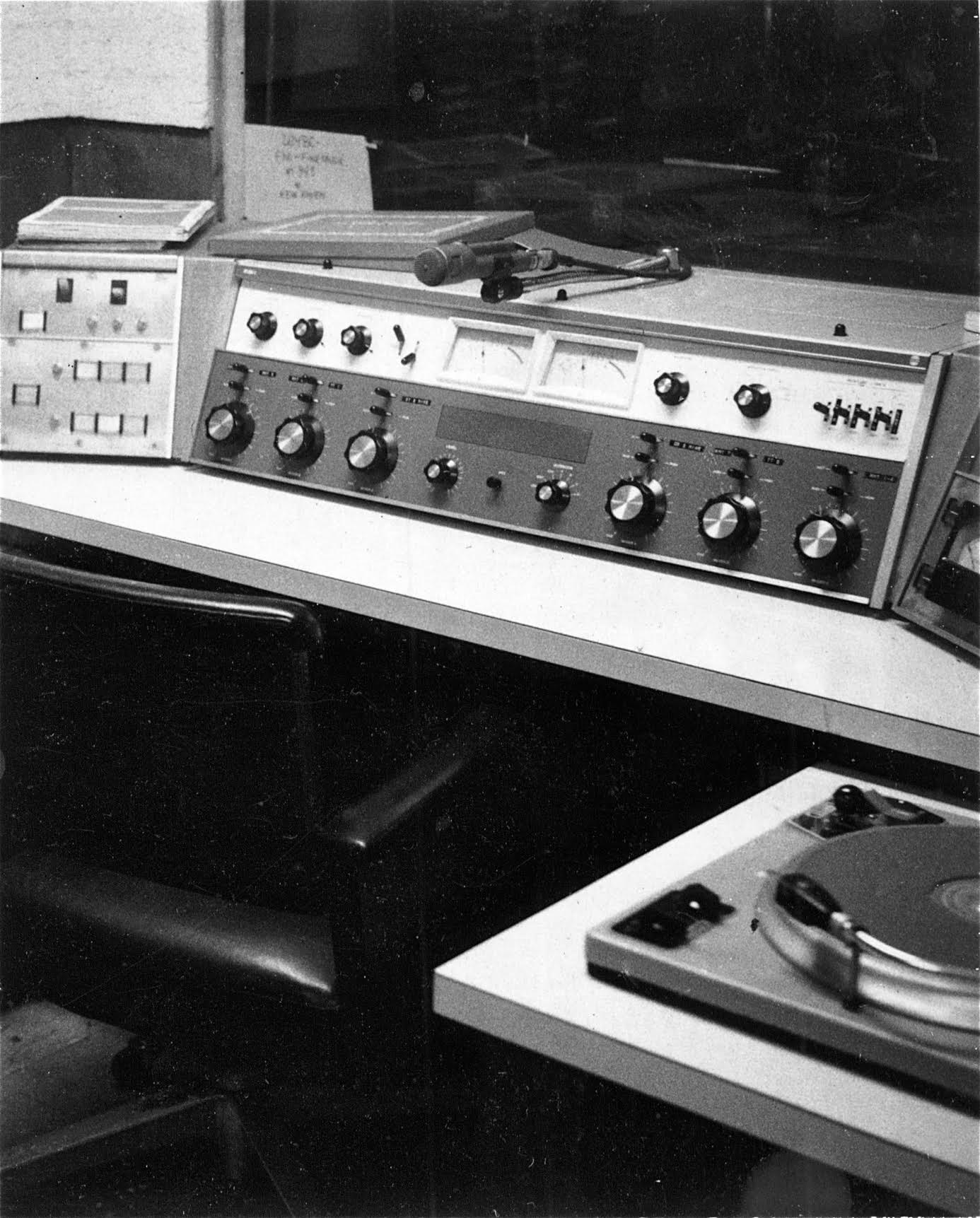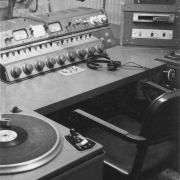WYBC and the Summer of ‘68
November 1, 2018
How We Transformed Radio
… and How Radio Transformed Us
Acknowledgments:
by Ken Devoe, with contributions from Kevin McKeown, Tom Guterbock, Andy Schnier, Bob Santulli and Alan Zaur.
In June of 1968, when students were leaving the Yale campus for summer vacation, about a dozen of us decided to stick around New Haven and keep WYBC-FM on the air 24×7 until our classmates returned in September.
This was the first time in WYBC’s history that the station would be on the air non-stop instead of signing off when the school year ended, as many college radio stations did.
If you weren’t part of WYBC or the radio biz, this might not seem like a big deal. But it was. Many forces were at work that affected us personally, culturally, politically, and artistically. These forces led us to do what we did at WYBC in the Summer of ’68 in a way that totally changed our lives and changed radio as we knew it.
[/av_textblock]
[/av_one_full]
[av_two_third first min_height=” vertical_alignment=” space=” custom_margin=” margin=’0px’ link=” linktarget=” link_hover=” padding=’0px’ border=” border_color=” radius=’0px’ background=’bg_color’ background_color=” background_gradient_color1=” background_gradient_color2=” background_gradient_direction=’vertical’ src=” background_position=’top left’ background_repeat=’no-repeat’ animation=” mobile_breaking=” mobile_display=” av_uid=’av-15lhtx3′]
[av_textblock size=” font_color=” color=” av-medium-font-size=” av-small-font-size=” av-mini-font-size=” av_uid=’av-jnxrabrf’ admin_preview_bg=”]
How?
Let’s rewind the tape and go back. (Anyone remember tape?)
In the 1960s a cultural revolution was brewing in the U.S – or more accurately, a countercultural revolution – which intensified as we approached our watershed Summer of ’68 at WYBC.
“You say you want a revolution. Well, you know, we all want to change the world.”
Now, you really can’t talk about the Summer of ’68 without first saying something about the Summer of ’67 – “The Summer of Love” – when hippies gathered in the Haight-Ashbury district of San Francisco and where musicians such as The Grateful Dead became icons of our generation. That place and time were celebrated in Scott McKenzie’s hit “San Francisco (Wear some flowers in your hair).” The mantra was “Sex, Drugs, and Rock ‘N’ Roll.” But there was a larger context stemming from the major events happening in the country and around the world in 1967:
- The Vietnam War was raging, as were protests against it.
- Racial tensions led to riots, notably in Detroit.
- Conservative actor Ronald Reagan took office as Governor of California.
- Segregationist Lester Maddox was sworn in as Governor of Georgia.
- Anti-war Senator Eugene McCarthy announced his candidacy for President of the United States.
There were also significant moments in rock music during 1967, including:
- The release of the Beatles’ Sgt. Pepper’s Lonely Hearts Club Band
- Debut albums from The Doors, The Grateful Dead, Jefferson Airplane – and Buffalo Springfield, who gave us the iconic protest song, “For What It’s Worth”
- The Monterey Pop Music Festival featuring Jimi Hendrix, The Who, Janis Joplin, and many other artists who captured our imagination
Mainstream radio didn’t embrace this cutting edge music. In fact, many stations were downright skittish about it. Remember The Rolling Stones’ “Let’s Spend the Night Together”? Stations wouldn’t play it, for fear of being accused of airing offensive sexual material. The Stones performed the song on The Ed Sullivan Show but were forced by Sullivan to sing “let’s spend some time together” instead of the original lyric.
That was 1967. What does any of that have to do with WYBC and the Summer of ’68? Plenty. Because the developing revolution in music and radio in 1967 set the stage for that momentous summer.
The State of WYBC and Radio During the ‘60s
To grasp the full impact music had on us as student broadcasters and the impact we had on radio, think about what WYBC and the radio business were like at that time. Progressive rock music didn’t get airplay on mainstream radio, which was dominated by AM Top 40 stations that played the hits, more hits, and nothing but the hits.
As freshmen, we became members of WYBC in early 1966 at the start of our second semester on campus. We had to wait ‘til then due to an old university rule that freshmen couldn’t join extracurricular organizations until their second semester, because Yale wanted us to get grounded in academics first.
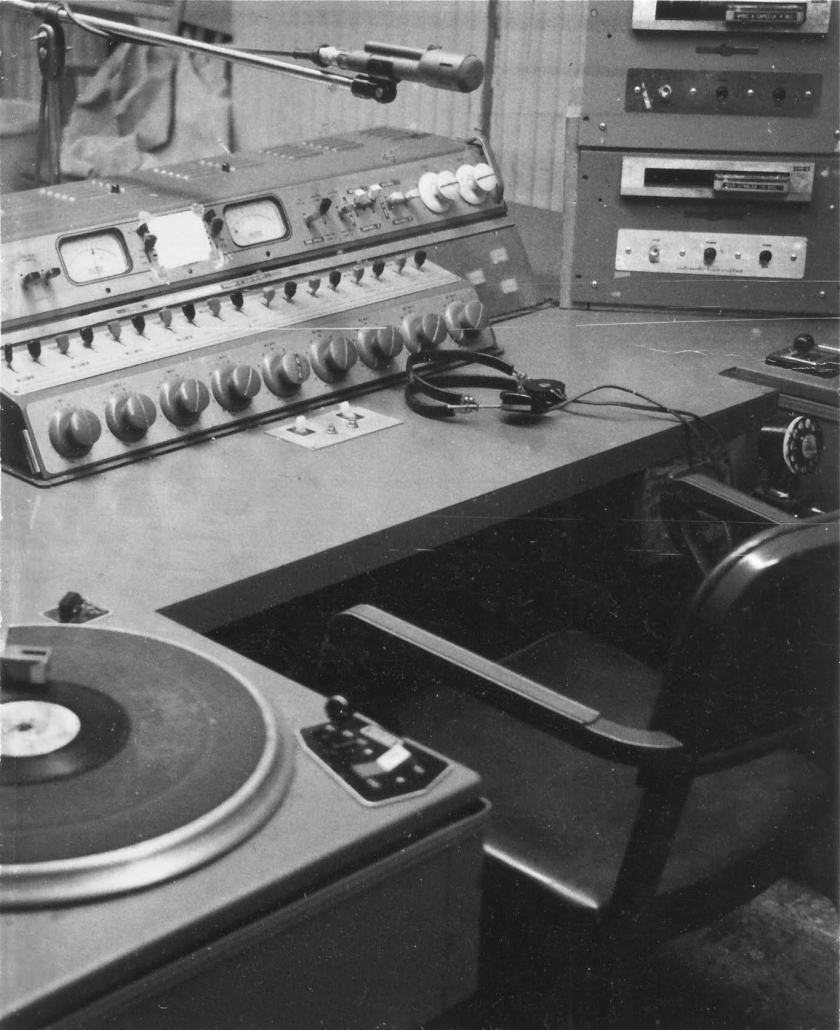
At that time, WYBC had a split personality. Our AM station – WYBC 640 – could only be heard in the dorms on the Old Campus and in the residential colleges. The signal was transmitted through the power lines to those buildings. The AM played pop music, soul, and oldies – the music we grew up with. The station was popular. There was a lot of competition to get an on-air shift. Our prime time was late night – 11 PM to 1 AM – with a program called “Stardust.” Only our very best DJs got to host it. The show was a mixture of music, contests, and humor (much of it raunchy).
WYBC-FM, however, allowed no rock music on the air and instead featured classical music, folk, and jazz – boring to some, but we had students doing those shows who were quite good at it. Still, many of us pushed to get rock on the FM. There was so much great new music coming out that nobody else was playing, and we wanted to play it.
AM vs. FM
Before continuing the WYBC saga, let me interject some of what was happening in the radio industry back then. Most of the big, successful stations were on AM. Ratings wars were fought between AM Top 40 stations. In New York it was WABC vs. WMCA. In Chicago, my home town, it was WLS vs. WCFL. When you and I were teens in high school, that was the kind of radio we listened to.
FM was the poor stepchild of the industry. Not many people had FM radios at home or in their cars. FM station owners did little with them. They were money-losers. Nobody was paying attention to FM. But we were – for good reason. Not only was the sound better on FM but, as student broadcasters, we had an opportunity on WYBC-FM to reach listeners well beyond the Yale campus. Remember: This was decades before the Internet and streaming audio.
We had the overnight market to ourselves, because other stations all signed off at 1 or 2 AM.
Plus, there was so much great music coming out that no one else was playing on the air. We wanted to be THE station that aired it, and we did. We started to make inroads in the market. We only broadcast from 2 PM to 2 AM at first, but soon began an overnight show called “Diversion.” As was the case with “Stardust” on WYBC-AM, only our best DJs got to do “Diversion” on the FM. We had the overnight market all to ourselves, because the other stations all signed off at 1 or 2 AM.
There was some great music that was being recorded in 1968, and we were playing then-emerging artists such as Deep Purple, Dr. John, Joni Mitchell, Crosby Stills & Nash, Steppenwolf, and James Taylor, along with exciting new releases from The Beatles, Rolling Stones, The Who, The Kinks, The Byrds and more.
The only station in New Haven County where anyone could hear music like that was WYBC-FM. Record companies started to take notice. I was on the air one afternoon on the FM when a middle-aged guy walked in off the street and introduced himself as Al Gurewitz from Columbia Records. Some of his label’s lesser known albums and artists were selling well at Cutlers and other record stores, and the reason was that WYBC was playing them. He became a big WYBC booster – feeding us new records before anyone else, getting us concert tickets to give away on the air, etc.
A revolution in rock radio was underway, and WYBC was at the heart of it.
1968 – A Year of Turmoil
In 1968, revolutions weren’t limited to music and radio. Consider some of the major events that took place in ’68:
- The Vietnam War continued to escalate, with 475,000 American troops stationed there.
- The war was so unpopular, Lyndon Johnson announced he would not seek re-election as President.
- Robert F. Kennedy announced shortly after that he would be a candidate for President.
- Columbia University students took over five campus buildings and demanded the University cut all ties with the military.
- Dr. Martin Luther King Jr. was assassinated in Memphis.
- The Republicans nominated Richard Nixon for President.
- Robert Kennedy was assassinated at the Ambassador Hotel in L.A.
- Eugene McCarthy bowed out of the Democratic race.
- The Democrats nominated Hubert Humphrey for President at their national convention in Chicago, which was marred by student protests and brutality inflicted by the Chicago police on the protesters.
Our world was in turmoil. Many of us wanted WYBC to be the voice of our generation – not just politically, but as an outlet for our kind of music which defied conventional standards. We put more progressive rock music on WYBC-FM and our audience grew.
WYBC’s Magical Mystery Summer of ’68
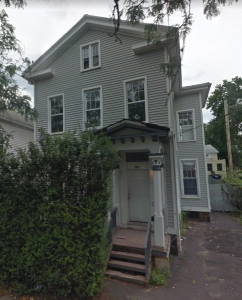
We didn’t want the station to go off the air while students were away. We wanted to build on the momentum we’d created during the school year. A few of us opted to stay in New Haven and do so. Some lived just outside of New Haven. The rest rented a house on Crown Street which we dubbed the “Magical Mystery House.” We ran WYBC like a professional station, with regular air shifts and a largely consistent format. Here was our on-air line-up:
- Lee Mundell’s Morning Show 6 to 10 AM
- Tom Guterbock 10 AM to 2 PM with a show called “George”
- Ken Devoe 2 to 6 PM, with an all request rock ‘n’ roll show called “New Generation”
- Jim Burnley with WYBC’s 6 PM nightly news
- Dave Wood 6:15 to 8 PM with classical music
- Willie Wright, an individual from the local New Haven community, 8-10 PM with soul music
- Rich Sanders 10 PM to 2 AM with the “Pardon Our Progress” jazz show
- Kevin McKean 2 to 6 AM with “Diversion”
We worked every weekday and rotated weekend shifts to give everyone a day off. Gordon Weingarth ’70 was our “swing man,” filling in as needed.
Kevin McKeown was our production wizard, creating great promos and commercials. He also created a 25-minute audio presentation for our sales rep to take to advertising agencies, touting our programming, our on-air personalities, and why our audience of young adults was worth targeting.
Necessity Is The Mother
It’s important to note here that unlike most college radio stations, which are owned and funded by their schools or in part by endowments, WYBC-FM was commercially licensed. We were allowed to sell advertising time. In fact, we had to. Yale didn’t own us, manage us, or fund us in any way – other than provide a space for us on campus at Hendrie Hall. (That’s no longer true today, as the university took over Hendrie Hall for the Music School and forced WYBC to find and lease our own space off campus.)
The point is, we needed advertising revenue to pay our bills. We needed to gain listenership to provide advertisers a reason to spend money with us, and we needed a distinctive marketing position, which we attained as a progressive rock station. Consequently, record companies, concert promoters and others bought time on WYBC to reach our young adult audience in a way the other stations in town couldn’t.
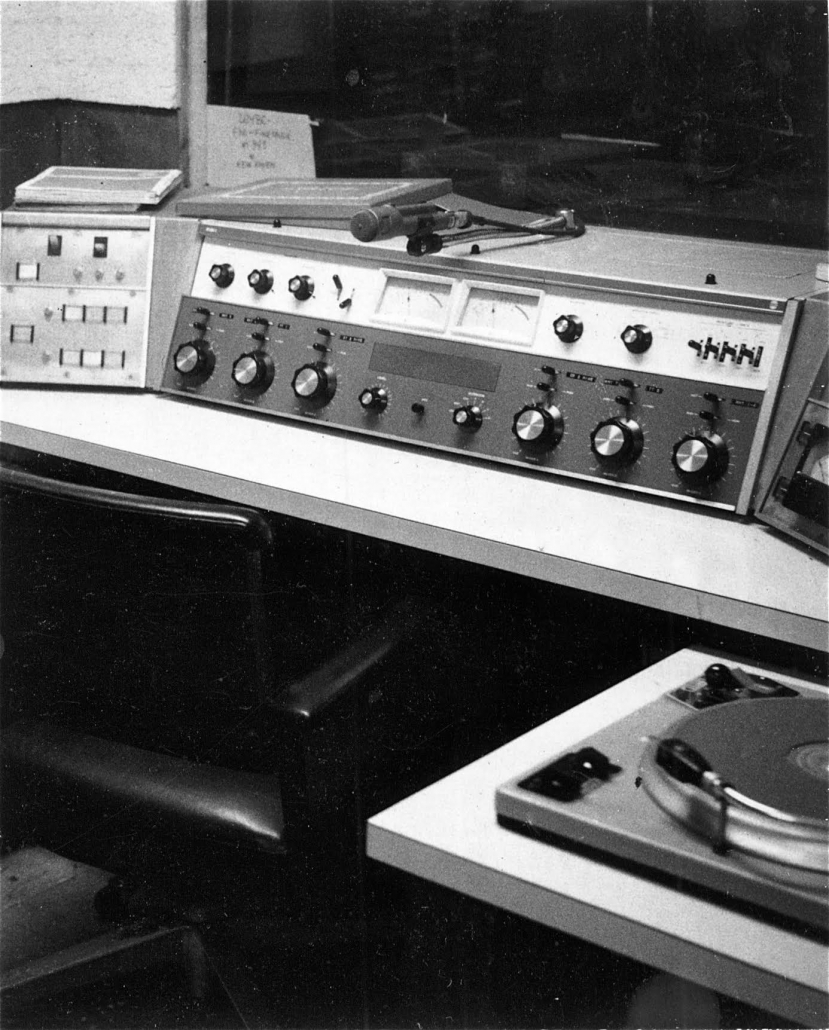
This was radio as it had never been done before. It was leading edge, unique, and entertaining. We weren’t the only progressive rock station in the country – nor the first. But we were the first and only one in Connecticut. Listeners took notice. Advertisers took notice. Our competitors in town took notice. They weren’t happy that we were taking listeners and ad dollars from them.
After the Summer of ’68, WYBC and radio in general would never be the same.
When our fellow student broadcasters returned to Yale in September of ‘68, it was up to them to follow our lead and keep the FM on the air 24×7 with our progressive rock format. To their credit, that’s what they did.
The New Haven radio market changed fundamentally – not entirely because of WYBC but in large part because of us. In 1971, WPLR-FM (the former WNHC-FM) co-opted our format and went progressive rock. Their 50,000 watts were more than 10 times our rated power and blanketed the state in a way we couldn’t. They had sizable financial resources to run promotions and giveaways we couldn’t afford to do. FM stations elsewhere in the state began programming various forms of rock. Eventually, WYBC couldn’t sustain itself against that competition, and the station morphed into something else entirely. The good news is that, today, it’s a thriving market-leading Urban music station. But that’s a topic for a different article.
Not only did WYBC transform radio in the Summer of ’68, but our radio experience back then transformed us personally and professionally. My time at WYBC was life-changing. It enabled me to embark on a 20-year on-air professional career. Before me, Kevin McKeown did the same. Gordon Weingarth eventually became Program Director of WPLR and had a long and successful run at it. Not everyone at WYBC went into radio or even wanted to. But their lives were also transformed by their WYBC experience. (See “What WYBC Meant to Me.”).
We were fortunate to be at Yale and in radio at a very exciting time for both. Back then, radio played a very important part in people’s lives. There was no Internet, cable and satellite TV, 24 hour news, or streaming audio and music services. Most people listened to regular over-the-air radio – and they listened a lot. To have a role in transforming that kind of radio was something special. No one can ever take that away from us.
Related Links:
[/av_textblock]
[/av_two_third]
[av_one_third min_height=” vertical_alignment=” space=” custom_margin=” margin=’0px’ link=” linktarget=” link_hover=” padding=’0px’ border=” border_color=” radius=’0px’ background=’bg_color’ background_color=” background_gradient_color1=” background_gradient_color2=” background_gradient_direction=’vertical’ src=” background_position=’top left’ background_repeat=’no-repeat’ animation=” mobile_breaking=” mobile_display=” av_uid=’av-pmpyif’]
[av_textblock size=” font_color=” color=” av-medium-font-size=” av-small-font-size=” av-mini-font-size=” av_uid=’av-jnyvw8ge’ admin_preview_bg=”]
What WYBC Meant
Classmates and fellow WYBC student broadcasters reflect on the impact WYBC had on their lives.
What follows are excerpts from five WYBC Classmates’ reflections on how their time a WYBC influenced their lives. Click on “read more“ at the end of each excerpt to see their full post.
[/av_textblock]
[av_textblock size=” font_color=” color=” av-medium-font-size=” av-small-font-size=” av-mini-font-size=” av_uid=’av-jnyvw8ge’ admin_preview_bg=”]
Kevin McKeown
 Almost immediately upon arrival at Yale, in fall of my freshman year, it became a nightly ritual for the four rooms on my floor of Welch Hall to come together and play the nightly contest on WYBC’s “Stardust.”
Almost immediately upon arrival at Yale, in fall of my freshman year, it became a nightly ritual for the four rooms on my floor of Welch Hall to come together and play the nightly contest on WYBC’s “Stardust.”
The hope of winning a Naples pizza was part of it, as was the amazement over what radio could do if not bound by the FCC. The contests were often obscene, or at least the winning answers usually were, and WYBC-AM, “closed circuit to the Yale campus,” played some politically incorrect singles. That unrestrained radio and a little alcohol made for a dorm party almost every night.
[…]
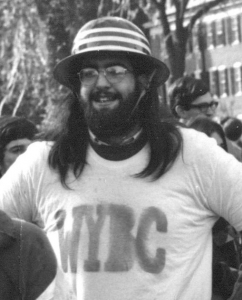
It turned out that things I’d learned at WYBC, like being able to cue a record and back-time to a newscast, were actual job skills, which got me in the door at a local real radio station “running the board” for a Sunday night oldies show. A few months later, I was entrusted with reading the news! Pretty soon I was on-air as a disk jockey in both New Haven and Hartford (for one harrowing vacation relief shift in the summer of ’67, in both cities at the same time). … Read more …
[/av_textblock]
[av_textblock size=” font_color=” color=” av-medium-font-size=” av-small-font-size=” av-mini-font-size=” av_uid=’av-jnxrau4z’ admin_preview_bg=”]
Ken Devoe
 Just about everything good that’s happened in my adult life is a direct result of my experience at WYBC.
Just about everything good that’s happened in my adult life is a direct result of my experience at WYBC.
When I got to Yale, I had no clue as to what I wanted to do post-Yale. My plans or lack of them didn’t include going into radio. In fact, I had no idea that college radio even existed.
I discovered WYBC quite by accident. I was in my room at Farnam Hall one Saturday afternoon with my transistor radio on and heard what sounded like a couple of people my age broadcasting play-by-play of a Yale football game. I was astounded. College kids on radio?
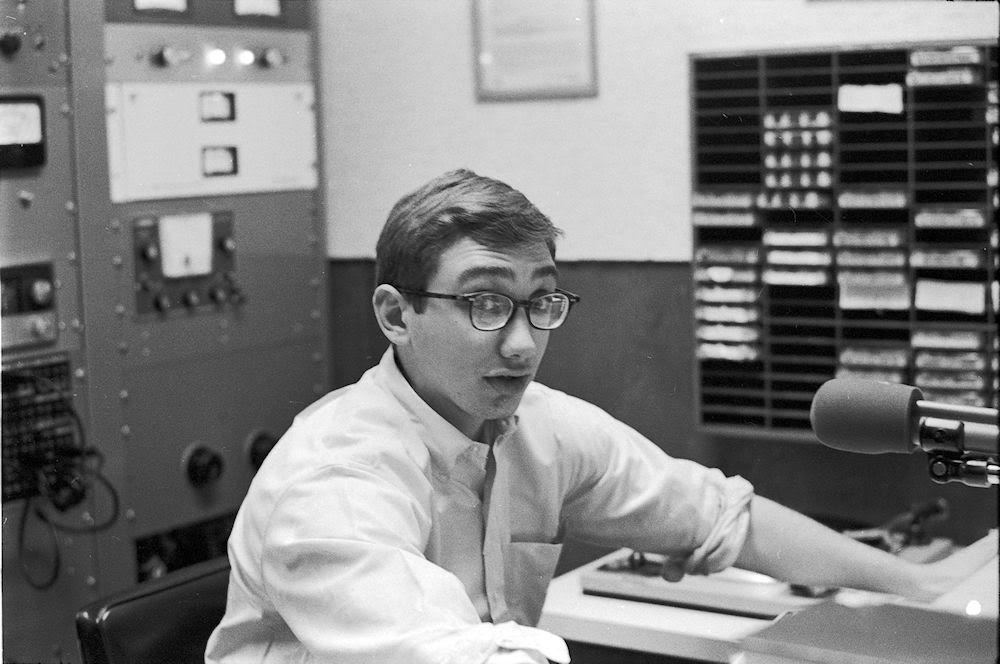
As a kid growing up in Chicago, I was fascinated listening to play-by-play announcers for my beloved Cubs, Bears and Blackhawks. I used to fantasize about doing play-by-play but never thought of it as a career option. But then I joined WYBC and their Sports Department. … read more …
[/av_textblock]
[av_textblock size=” font_color=” color=” av-medium-font-size=” av-small-font-size=” av-mini-font-size=” av_uid=’av-jnxrau4z’ admin_preview_bg=”]
Tom Guterbock
It was in some ways a foregone conclusion that I would heel WYBC. My brother Walt (TD ’66) was the Program Director of the station when I was a freshman.
I was naturally blessed with the gift of gab, a resonant voice, and a love of radio. That deal was sealed the night in January 1966 when the WYBC men appeared in Freshman Commons with a tape recorder and a sheaf of old news copy pulled off the AP teletype: The WYBC Freshman News Reading Contest!
I took my turn reading the news copy and learned the next day that I had WON the free pizza that was offered as a prize. My brother took no end of grief about his younger brother acing the competition.
The magic of radio was brought home to me the first time I visited the station. I learned why radio was called the “Theater of the Mind.” … read more ….
[/av_textblock]
[av_textblock size=” font_color=” color=” av-medium-font-size=” av-small-font-size=” av-mini-font-size=” av_uid=’av-jnxrau4z’ admin_preview_bg=”]
Alan Zaur
 I was, among other things, a techie at WYBC. I also remained in New Haven during 1968 and did a little technical work at the station when it was required. In order to have money for school I needed a “real job”. I worked at WNHC-TV that summer as a broadcast engineer at the TV transmitter.
I was, among other things, a techie at WYBC. I also remained in New Haven during 1968 and did a little technical work at the station when it was required. In order to have money for school I needed a “real job”. I worked at WNHC-TV that summer as a broadcast engineer at the TV transmitter.
In 1968, being a techie at WYBC had its amusing moments. One morning at about 2 AM I got a call from the overnight DJ telling me that the Collins console was “bleeding” and I had to come right over to the station. As you well remember, many of the DJ’s were experimenting with psychedelic drugs. Plus, it was the middle of the night. I figured it was some sort of visual distortion or hallucination. But no, when I got to the station there was this thick fluid seeping from the front of the console. Using my scientific skills, I tasted a small sample (not a good idea, but it was the middle of the night, after all). It was densely sweet. We took the console apart and discovered that someone had put a can of soda on top of the console. The can had subsequently slipped in the small space between the console and the wall and tipped over. How long the soda had taken to seep out is anybody’s guess.
I developed an interest in intellectual property during that summer of 1968 when I was working at WNHC-TV, and I thought that was going to be my career path. Community antenna television was just getting off the ground … Read more …
[/av_textblock]
[av_textblock size=” font_color=” color=” av-medium-font-size=” av-small-font-size=” av-mini-font-size=” av_uid=’av-jnxrau4z’ admin_preview_bg=”]
Andy Schnier
 I wish my recollection of this were sharper, but as they say, “it is what it is” – and you can be darned sure it’s not getting any better. Anyway, I was trying to remember how I came to “heel” WYBC, and as best as I can remember, this is how it happened, mundane as it is.
I wish my recollection of this were sharper, but as they say, “it is what it is” – and you can be darned sure it’s not getting any better. Anyway, I was trying to remember how I came to “heel” WYBC, and as best as I can remember, this is how it happened, mundane as it is.
Like most of us of that time I think, commercial radio (rock and roll) was an important part of my life. I came from NYC (albeit its weird outlying borough, Staten Island) where we had WABC and WMCA and some other big-time AM “top 40″ radio stations to listen to. Transistor radios were ubiquitous. My mother had taught me to love classical music. Folk music was the tune my generation was marching to, and rock and roll was what made the blood pulse in your veins.
[…]
I was impressed with the fact that this was a very professional looking station with a lot of sophisticated equipment. I liked … read more …
[/av_textblock]
[av_textblock size=” font_color=” color=” av-medium-font-size=” av-small-font-size=” av-mini-font-size=” av_uid=’av-jnxrau4z’ admin_preview_bg=”]
Bob Santulli
 While so much of what was exciting and revolutionary about WYBC had to do with its focus on progressive rock and roll, there was also, for most of our time at Yale, a classical music side to WYBC FM. That is how I got interested and involved in heeling the station.
While so much of what was exciting and revolutionary about WYBC had to do with its focus on progressive rock and roll, there was also, for most of our time at Yale, a classical music side to WYBC FM. That is how I got interested and involved in heeling the station.
I remember having an afternoon classical show, “Front Row Center,” — in WYBC lingo, “FRC” — and then moved up to an evening program once a week, which I think was called “The Age of Grandeur” or something pompous like that. I played 19th century classical music and had a great time selecting pieces from our impressive classical music library and figuring out how to back-time so you finished before the news or whatever followed. I can still remember the classical library, with floor to ceiling shelves of records (yes, records in those days, of course – before cassettes, before CDs, way before MP3s, and before the current revival of interest in vinyl.
[…]
While Yalies were certainly more into rock than Rachmaninov, there were … read more …
[/av_textblock]
[/av_one_third]

